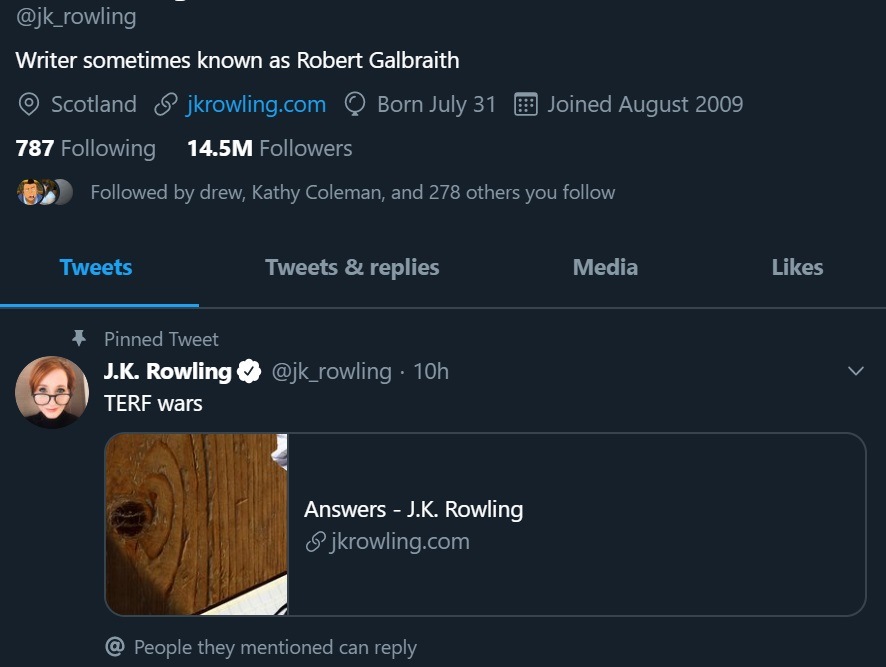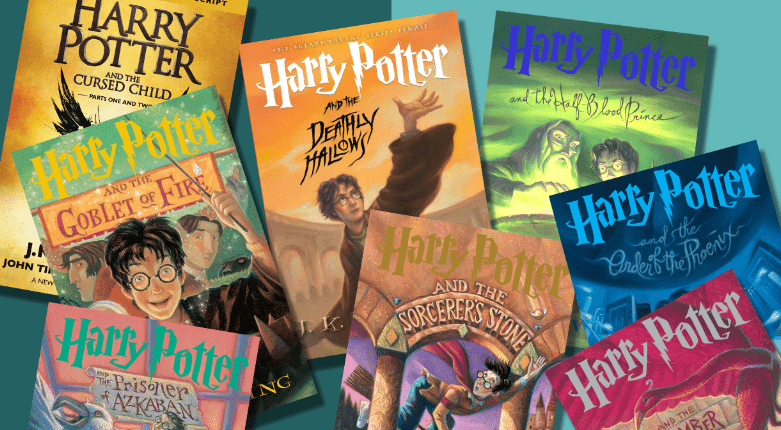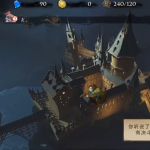You Don’t Have to Read J.K. Rowling’s Transphobic Essay

J.K. Rowling and her transphobic views have blared to the forefront this week, with breathtakingly bad timing. For her trans and non-binary fans, it’s painful to see.
I remember the first time I read a Harry Potter book from J.K. Rowling. I read a story about a boy living in a house with a family who were hateful and fearful and worried about what the neighbors would think. A story about a boy shoving down who he was, while it exploded out of him anyway. A story about a boy who was found, and told he wasn’t something bad or frightening. As I read, I wished I could follow Harry’s footsteps into the magical world; go far away to a place where my peers were like me and the neighbors didn’t matter. The idea of it was a lifeline for reasons that, at the time, I couldn’t have explained to you.
I also remember the first time I read the coming-out story of a non-binary person. It was accompanied by a picture of them at a Pride parade. I read this person’s journey, as they found out who they were and translated this part of themselves into words. I felt a lurching blossoming aching sensation inside me that I couldn’t explain. I looked at that photo at Pride and wished I could be there, too, right beside them. Somehow, again, the idea was a lifeline.
And I remember driving in my car on a sunny late afternoon, sad and confused and trapped in a way that I couldn’t understand – and then quite suddenly feeling the top of my head lift off. My wordless feelings fell into place. Finally, I connected what I felt inside with the stories I had read. I’m not a woman. I’m non-binary. I belong in that Pride parade. I actually wholly belong somewhere. I’m not intrinsically bad or wrong or frightening. There are other people like me. Harry – yer a wizard.
And now J.K. Rowling has spoken out at significant length against the very thing her writing helped me through. I know I’m not alone in this mattering to me. Harry Potter is a series that has woven through the lives of so many of us.
The feeling is frankly awful. After some of her previous actions on Twitter, I am not surprised by Rowling but I am so, so sad. I am hurt. I managed to read the first part of her essay justifying her transphobia, which she tweeted a link to earlier today. I’m not going to link to it here, because you don’t have to read it. None of us have to read it.
There are infinite nuanced and important conversations to be had about trans issues and how they intersect with the issues of other communities. None of those conversations can be started by Rowling with her current perspective. Because at the heart of those conversations needs to be a fundamental, simple belief that what trans and non-binary people say about themselves is true, and J.K. Rowling does not have that belief.
It’s painful to say so. It’s painful when someone whose opinion you once valued says that you can’t be who you say you are. Even if Rowling’s words never mattered to you, it can be painful to see this conversation explode out – to have your core identity, your heart, your mind, your self, become a matter of debate.
Being trans and non-binary, and being surrounded by the always-intense conversation about trans issues, feels like standing at the center of a huge online crowd. Everyone’s screaming and everyone’s pushing, and it’s all about a part of you that’s so personal. It’s your body, it’s your mind, and it’s up for debate. You can’t stop it. It’s so loud and it’s so close.
You can’t even step away from it all by going offline because you internalize the anger and now the yelling is inside your head, too. You try to learn how to listen to just a few voices in the furor. The pressure builds. There are so many words. Your innermost self is being discussed by people who cannot understand you. Where can you go to be at peace? Where will the shouting stop?
Where can you belong?
Hogwarts, for so many of us growing up, represented that place. A place where we weren’t the subject of debate or fear or ridicule. A place where we could experiment in the open with things about ourselves that we’d always had to hide. A place that was home. A part of me can’t shake the feeling that I grew up falsely feeling safe inside an enemy castle.

What J.K. Rowling has done hurts, and it sucks, and there are going to be real-life consequences for this fantasy world being twisted away from us by its creator. Though it’s tempting to try to think of the series as authorless going forward, it’s important to remember that she alone did write those books with all their flaws of racism and anti-Semitism and more, for which she has failed to take accountability.
We have to remember that Rowling’s politics and views are all over the series. And yet, with her tweets and this most recent essay, we’ve learned beyond doubt that Rowling absolutely did not create the Hogwarts that meant so much to trans and non-binary people. She would never have done it.
Our Hogwarts isn’t the one from her Harry Potter series. Hogwarts is the name some of us gave to our dream of being out, open, safe, and loved. Maybe for a while, it was the only word we had to wish for what we needed. Those wishes and dreams were ours. That place, that Hogwarts, is ours. J.K. Rowling didn’t make it; we did. And we can still share it. We can still have it. It isn’t gone. There’s shouting and there’s anger and there’s violence and there’s the articulate bigotry of the people we used to love and yet truly, despite all of it – in the real world, between each other, that place we made still exists. That place where we belong.
If you’re reading this and you’re hurting, then you are that place for me. And I am that place for you. In this place, you don’t have to explain or justify or prove or convince. I trust you. When you talk about yourself, when you say who you are and what you need, I believe you.
And we aren’t alone. There are voices speaking up. There are other authors. There are readers the world over. There are those connected to the Harry Potter franchise who have taken the time to learn and support us – Daniel Radcliffe, Eddie Redmayne, and Emma Watson.
We don’t have to listen to the shouting and the rage, and we don’t have to doubt ourselves over words born out of bigotry. We have each other. We have allies. Through the crowd, we are connected. We can send help to where it’s most needed; to the groups most affected by prejudice and violence, most of all to Black trans and non-binary people.
Call it Hogwarts, or call it something else – but with or without J.K. Rowling, we have a place where there is help to be had. We have a place where we belong. And we are the ones who made it.
Author: Em Rowntree
I’m a non-binary writer, teacher, and cat-lover from the UK.
Help support independent journalism. Subscribe to our Patreon.
Copyright © The Geekiary
Do not copy our content in whole to other websites. If you are reading this anywhere besides TheGeekiary.com, it has been stolen.Read our







Brilliant!
My views on JK Rowling and her work is slightly different. I cancelled her a long time ago. This very selfishly involved characters like Remus Lupin and Albus Dumbledore. Through the years I have even found more things in her work that I found horrible and a real resentment grew. Still I knew that her work was making a lot of people happy and I was kind of willing to keep quiet about it for the sake of not hurting others. Then came a time when I kept hearing that she was cancelled. Still a funny thing was that no matter how many times she got cancelled the fandom just kept on loving her work and seeming to forgive her or even defend what she would say or do. So my resentment grew until I couldn’t care about the whole mess. Or perhaps maybe I care at least a little. At least I care enough to feel I want to be able to say this: there might be one or two characters that I really like in the Harry Potter universe but the rest I really loathe as the most putrid hate filled fantasy I ever made the mistake of liking.